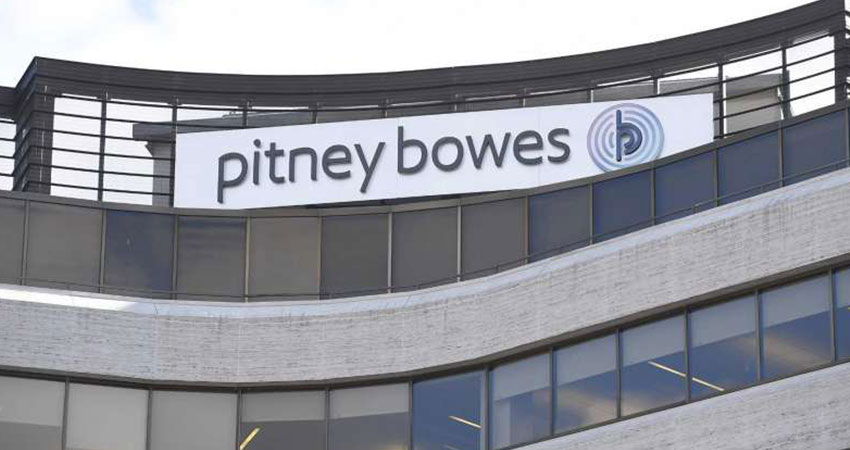Some major Pitney Bowes investors unhappy with its financial results are renewing calls for the company to sell off its money-losing global ecommerce business and get rid of CEO Marc Lautenbach, with one estimating a $1 billion valuation for the unit and interest from heavyweights like Amazon and Walmart.
In a post on Seeking Alpha, Justin Dopierala, president and founder of Domo Capital Management, urges new independent directors Steven Brill, a retired UPS executive, and Darrell Thomas, a former VP and treasurer at Harley-Davidson, to side with Hestia Capital, oust Lautenbach and sell off the global unit.
Update, Sept. 8, 2023: a third firm is echoing the call for Lautenbach to depart and the ecommerce business to be offloaded. Ancora Holdings Group, a major debt holder of Pitney Bowes, is also agitating for the board to remove Mary Guilfoile as chair, saying she’s too beholden to current management, and replace her with former ShippingEasy CEO Katie May.
“Given that the Board and (Lautenbach) were sternly rebuked by shareholders and all three independent proxy advisory firms this past spring, we assumed that you would finally recognize the need to focus on these two profitable segments rather than pursuing reckless growth within the mismanaged global ecommerce segment,” Ancora chairman and CEO Frederick DiSanto and president James Chadwick said in a joint statement. “We are writing to you today because you appear either unable or unwilling to pursue this logical path.”
Hestia principal Kurt Wolf fought for and won four of nine Pitney Bowes board seats in May after a bruising proxy fight, including his own. Hestia holds a 9% stake in the company. Wolf and Hestia were also involved in a high-profile board takeover of GameStop that enabled fabled investor Ryan Cohen to step in as CEO.
“If they had a competent management team running the global ecommerce unit, it could easily generate over $100 million a year instead of losing $100 million,” said Dopierala, who holds a 1% stake in Pitney Bowes. “Every single quarter and year it’s disappointing, and each time there’s a new excuse for why it’s not performing, even though there have been major tailwinds for the industry as a whole.”
For 2022, the global ecommerce division, created from the 2017 acquisition of Newgistics, had an EBIT loss of $100 million on revenue that declined 13%. By comparison, the presort division, a U.S. Postal Service workshare partner, reported an $82 million EBIT gain and 5% revenue growth, while SendTech, which offers mailing and shipping technology and services, reported $401 million in EBIT on 3% revenue growth.
In the most recent quarter ended June 30, Pitney Bowe’s global ecommerce unit lost $38 million in adjusted EBIT on a 21% drop in revenue, while presort gained $20 million (+3% revenue) and SendTech reported $97 million in adjusted EBIT despite a 5% drop in revenue.
In his post, Dopierala posited three different scenarios for Pitney Bowes and its board, all of which result in the sale of the global ecommerce unit and Lautenbach’s departure. One possibility: an activist investor stepping in to force the action, much as Cohen did at GameStop. Brill, he suggested, could follow the example of former Walmart CEO William Simon, who supported Cohen and Wolf against incumbent directors and helped turned the tide at GameStop.
Short of that, he said, 2024 could bring another expensive, contentious proxy battle. Other major investors in Pitney Bowes include BlackRock and Vanguard, who could potentially throw their weight behind the Hestia contingent to force a change, Dopierala wrote.
A $1 billion valuation for the global ecommerce unit was “appropriate and conservative,” Dopielara wrote. He added Amazon, Walmart, UPS and FedEx are all potential interested parties. “That valuable asset in the hands of one of those companies could be extremely profitable, given their volume and package characteristics,” he said.
On Monday, Houston-based investor Bradley Radoff, a director of Harte Hanks and three other firms, issued an open letter to Brill and Thomas. In it, he urged the new Pitney Bowes directors to support a divestiture of the global ecommerce unit as well as an “orderly departure” for Lautenbach, who has been in the role for a decade. He also asked them to support “cost containment initiatives” of Pitney Bowes’ “bloated corporate overhead” to the tune of $50 million a year.
“I fear you may have been misled about the state of GEC (global ecommerce) when you joined,” Radoff wrote. “Regardless, you now bear responsibility for the actions of Mr. Lautenbach and the losses posted by GEC. The clock is ticking.”
Radoff said shareholders “expected immediate action” after an “absurdly expensive and wasteful proxy contest that resulted in four legacy directors being voted out.” Dopierala estimated the proxy fight cost Pitney Bowes $11 million in the first six months of 2023, based on its filings.
“Rather than be a logjam, please differentiate yourself from the failed legacy directors,” Radoff said.
“As a practice, Pitney Bowes engages in open and regular communication with shareholders and welcomes constructive input on how to enhance long-term shareholder value,” said spokesman John Spadafora in an emailed statement. “Our board of directors and management team remain focused on delivering long-term, sustainable future value.”

